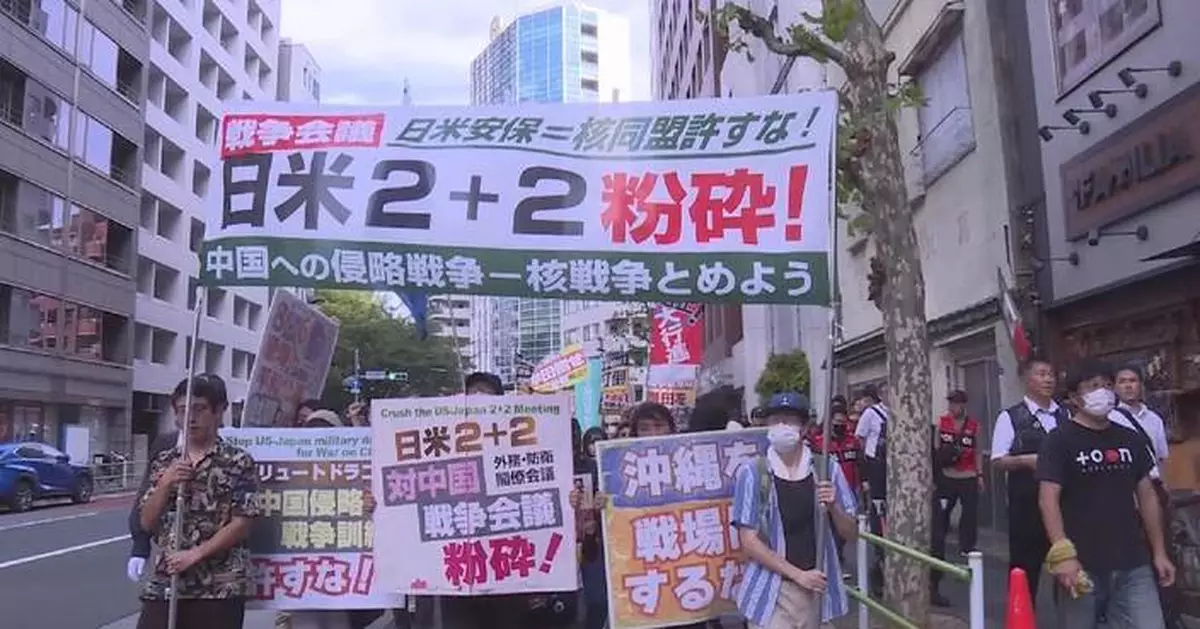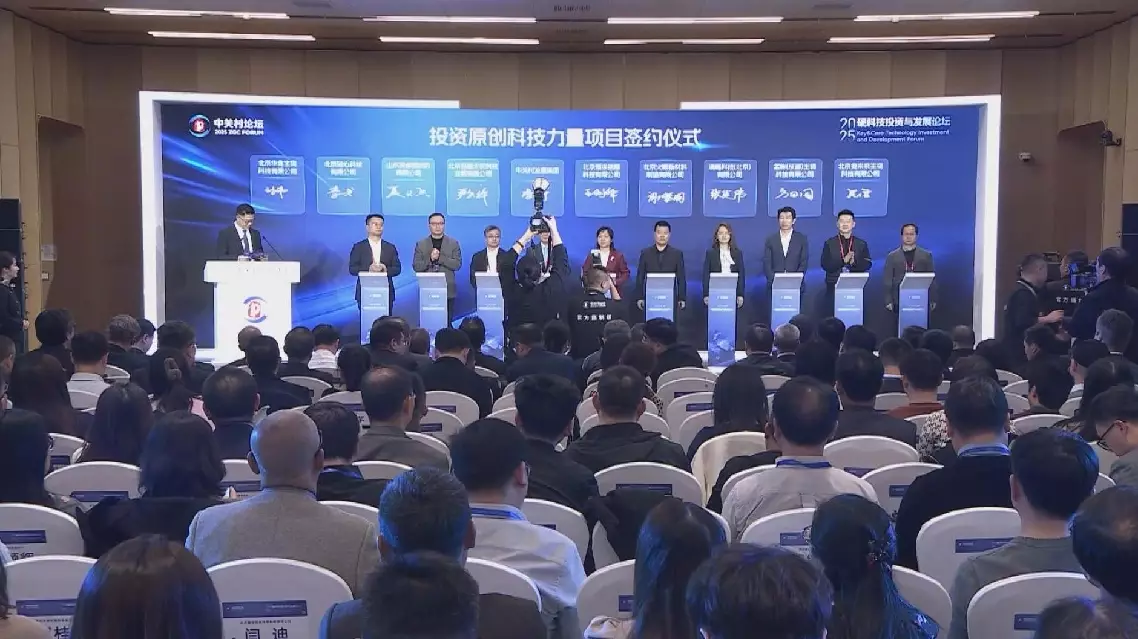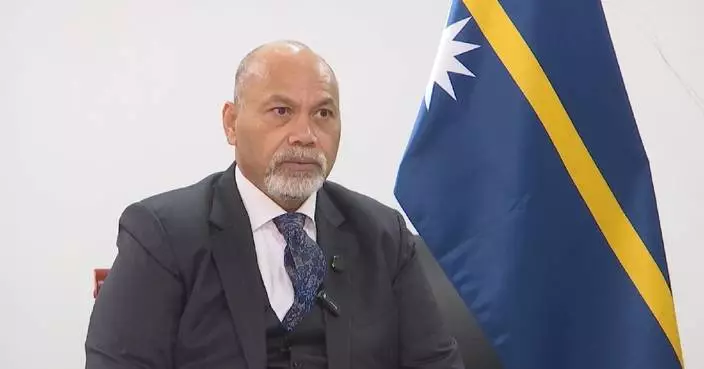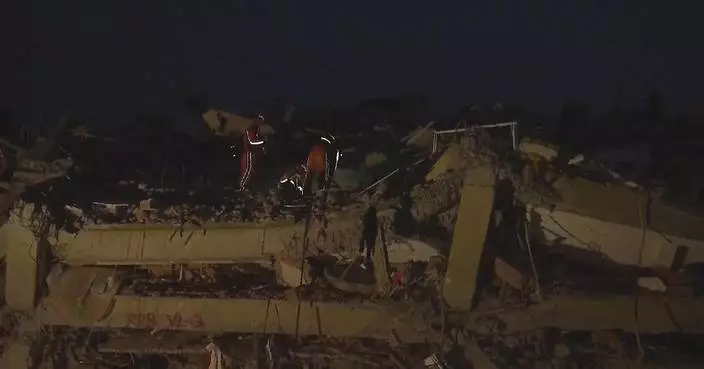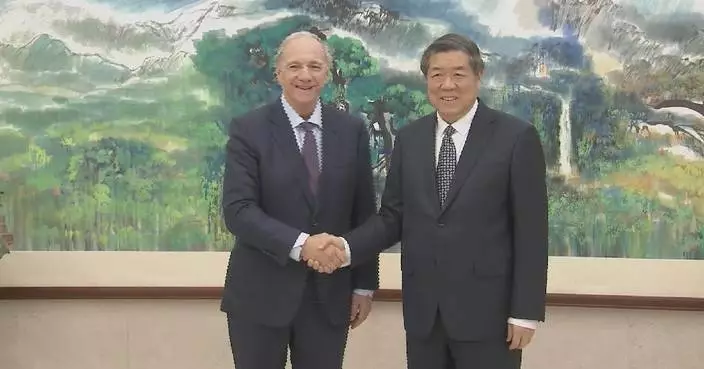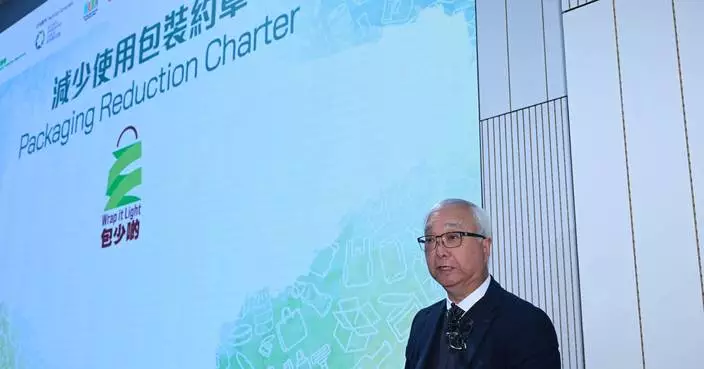Crowds of activists have marched through central Tokyo to protest against "2+2" security talks between Japan and the United States and a Quad foreign ministers' meeting, saying the U.S.-led military alliance will increase the possibility of war. Top Japanese and U.S. diplomats and defense chiefs held the Japan-U.S. Security Consultative Committee meeting, known as "2+2", in Tokyo on Sunday, followed by a meeting on Monday of the Quad group, where the foreign ministers of Australia, India, Japan and the U.S. discussed maritime security and initiatives to strengthen cyber defenses.
In the "2+2" security talks, the U.S. announced plans for a major revamp of its military command in Japan to deepen coordination with the Japanese forces.
Not far from the meeting venue, the protesters marched to denounce the meetings for fueling tensions in the Asia-Pacific region.
They said strengthening U.S.-Japan military ties will only accelerate the arms race and drive the country closer to war.
"I think this agreement will eventually unify the U.S. military and the self-defense forces, strengthening their cooperation, unifying the chain of command, which clearly has China in mind and is a posturing for war. I strongly object to this," said Tomoko Horaguchi from Suginami Ward Council.
Japanese Foreign Minister Yoko Kamikawa said the Quad grouping was about protecting the foundations of prosperity in the Indo-Pacific region, and achieving co-existence with the international community. But protesters said beefing up the security pact will only fuel tensions in the region, amid ongoing conflicts across the globe.
In an interview with China Central Television (CCTV) on Monday in Tokyo, Ukeru Magosai, head of the East Asian Community Institute, said that the deepening of cooperation in military and other fields between Japan and the U.S. risked inflaming the situation in the Asia-Pacific region and threaten regional security and stability.
"The U.S. will avoid direct involvement in the war as much as possible, but increase its options by using Japan's self-defense forces. It is the biggest goal of the U.S. to utilize Japan's self-defense forces for its strategic purposes. It is said that Japan and the U.S. jointly command the integrated system, but in reality it is the U.S. that judges the situation and makes decisions. In the future, Japan may be automatically drawn into various situations," he said.
Magosai said that the U.S. attempt to strengthen the so-called "extended deterrence" and place its allies under its "nuclear umbrella" will only increase regional tensions and push Japan to the forefront of conflict and confrontation.
Although Japan's security situation has not changed for a long time, he said, the Japanese government has been intensifying its military and diplomatic ties with the U.S. on the grounds of security, helping it intervene in the Asia-Pacific region and stoke regional tensions.
"What the U.S. is doing now is stirring tensions by binding Japan to issues that have nothing to do with Japan's security. Japan's response will further disturb the regional situation," he said.
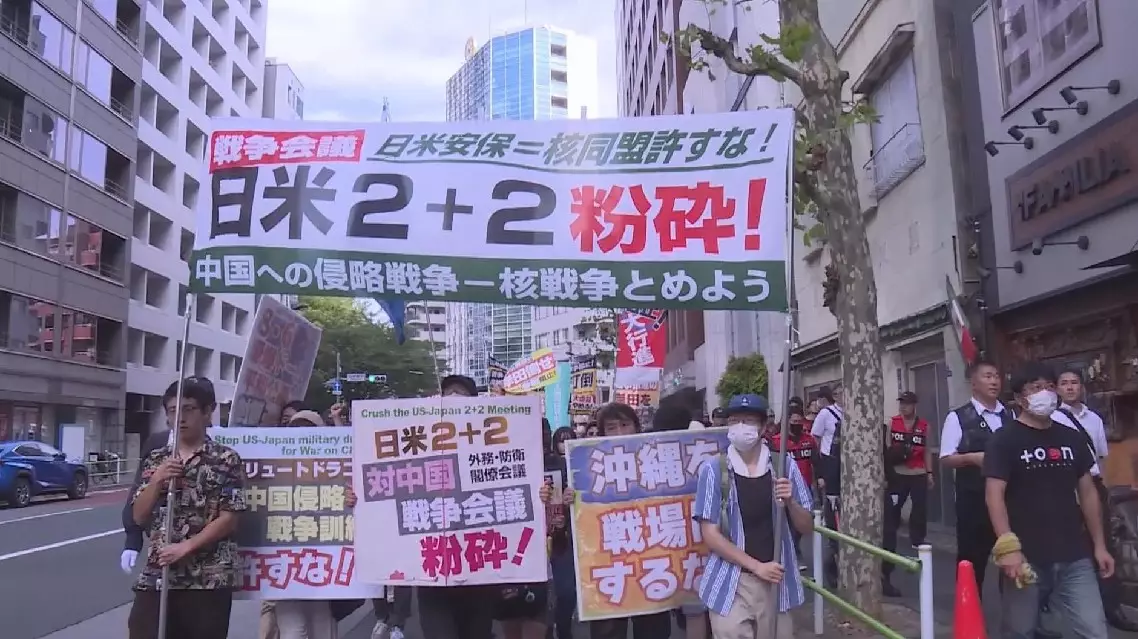
Japanese protesters denounce US-Japan "2+2" talks, Quad meeting


